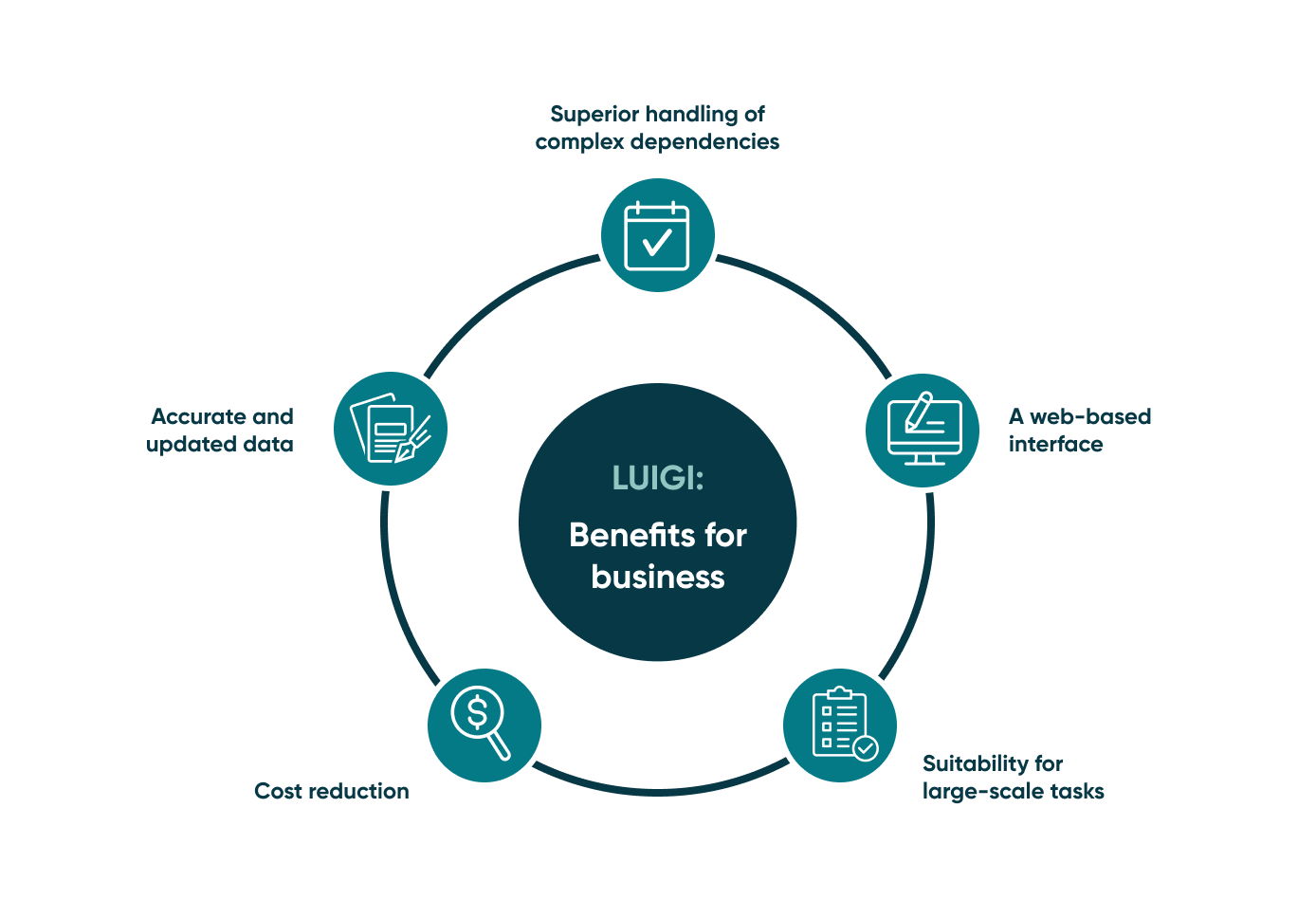Streamlining ETL Processes in the Travel and Hospitality Industry with Luigi


In the era of big data, the ability to efficiently extract, transform, and load (ETL) data is crucial for any industry.
The travel and hospitality industry is no exception.
With vast amounts of data coming from various sources such as online booking systems, customer reviews, social media, and more, the need for a robust ETL tool is paramount.
Enter Luigi, a Python package that simplifies the process of building complex pipelines of batch jobs.
What is Luigi?

Luigi is an open-source Python module that helps you build complex pipelines of batch jobs. It handles dependency resolution, workflow management, visualisation, handling failures, command line integration, and much more.
The Luigi package was developed by Spotify and is named after the character from the Super Mario series, who is known for his ability to overcome obstacles and complete tasks.
Why Luigi?
Luigi offers several advantages over traditional ETL tools:
- Pythonic Interface: Luigi is written in Python, a language known for its readability and simplicity. This makes it easy to write and understand ETL jobs.
- Dependency Management: Luigi excels at handling dependencies between tasks. It ensures that tasks are executed in the correct order and can even handle tasks that depend on the output of other tasks.
- Failure Handling: Luigi has robust failure handling capabilities. If a task fails, Luigi can retry it, notify you, or even run a different task.
- Visualisation: Luigi provides a web-based interface where you can visualise your task dependencies and track their progress.
While Luigi is a powerful tool, it's worth noting that there are other ETL tools in the market that also offer robust features.
These include Apache Airflow, an open-source platform to programmatically author, schedule and monitor workflows, and AWS Glue, a fully managed ETL service that makes it easy to move data between data stores.
Another tool often compared with Luigi is Celery, a distributed task queue that excels at processing tasks asynchronously and can distribute these tasks over multiple workers, potentially across many machines.
It's great for handling tasks that are independent of each other and can be processed in parallel. However, it doesn't natively handle complex dependencies between tasks, which is where Luigi shines.
Luigi's simplicity and Pythonic interface make it a popular choice among many developers.
Luigi in the travel and hospitality industry: A practical example
A hypothetical example of a task for Luigi in the travel and hospitality industry could be parsing hotel data from various sources.
For instance, one could use the sitemap from Booking.com available at "https://www.booking.com/sitembk-hotel-index.xml". This task involves downloading a sitemap, extracting gzipped XML files, parsing hotel URLs, and categorising them by country.
The extracted data can then be stored in any suitable storage, depending on the specific requirements of the task.
This task is a perfect fit for Luigi due to its complexity and the need for dependency management. The extraction, transformation, and loading of the data involve multiple steps that need to be executed in a specific order.
Luigi's ability to handle dependencies between tasks ensures that the data is processed in the correct sequence. Furthermore, the platform’s robust failure handling capabilities can manage any issues that may arise during the ETL process, ensuring that the task is completed successfully.
Please note that this example is hypothetical and intended for illustrative purposes only. Any actual use of data from Booking.com or any other website should be in compliance with all applicable terms and conditions.
This approach aligns with the insights shared in our previous article, Data Challenges for Travel Tech Startups, where we discussed the dynamic nature of big data in travel tech and the high cost of data sources.
By leveraging Luigi, startups can effectively navigate these challenges, ensuring they have a robust system in place that can process and analyse data quickly and efficiently to provide up-to-date and accurate information to users.
Luigi: Benefits for business
Luigi offers a multitude of benefits for businesses. Let’s take a closer look.

Superior handling of complex dependencies
Its ability to handle complex dependencies between tasks ensures that tasks are executed in the correct order, significantly improving the efficiency of data processing workflows. This efficiency is further enhanced by Luigi's robust failure handling capabilities.
If a task fails, Luigi can retry it, notify you, or even run a different task, making your data processing workflows more reliable and less likely to be disrupted by failures.
A web-based interface
Luigi also provides a web-based interface where you can visualise your task dependencies and track their progress.
This clear overview of your data processing workflows makes it easier to identify and address any issues, providing a level of visibility that is invaluable in managing complex data tasks.
Suitability for large-scale tasks
While Luigi isn't designed for real-time processing or distributing tasks across multiple machines, it's well-suited to large-scale batch processing tasks. This makes it a good choice for businesses dealing with large volumes of data.
Additionally, Luigi is written in Python, a language known for its readability and simplicity. This not only makes it easy to write and understand ETL jobs, but also allows for a great deal of flexibility in how you design your data processing workflows.
Cost reduction
By improving the efficiency and reliability of your data processing workflows, Luigi can help to reduce the costs associated with data processing.
For example, by ensuring tasks are executed in the correct order, you can avoid the need to re-run tasks due to failures or errors. This cost-effectiveness is a significant advantage for businesses.
Accurate and updated data
Finally, with efficient and reliable data processing workflows, businesses can ensure that they have access to accurate, up-to-date data. This can support better decision-making and lead to improved business outcomes.
In short, Luigi can provide significant benefits for businesses that need to process large volumes of data. It offers a powerful, flexible solution for building complex data processing workflows, and can support improved efficiency, reliability, and decision-making.
Common challenges with ETL tools
ETL tools, while powerful, often come with their own set of challenges. One of the most common issues is the complexity of scaling.
As the volume of data grows, ETL processes can become more resource-intensive, leading to longer processing times and increased costs. This is particularly relevant in the travel and hospitality industry, where data volumes can be enormous.
For instance, without a good scaling strategy, a task like parsing hotel data could consume up to 50GB of RAM, leading to significant costs on cloud infrastructure in a matter of seconds.
Luigi, with its ability to handle complex dependencies and robust failure handling, can help mitigate some of these challenges.
Unlock Success with Premium Software Development
Contact us


In conclusion
Luigi is a powerful tool for creating ETL pipelines. Its Pythonic interface, robust dependency management, and visualisation capabilities make it an excellent choice for ETL tasks in the travel and hospitality industry.
By leveraging Luigi, businesses can streamline their data processing workflows, leading to more informed decision-making and improved business outcomes. As we've previously discussed, navigating the data challenges in the European travel tech startup scene can be daunting.
But with the right strategies and an adaptable approach, startups can overcome these hurdles and thrive in the industry.
Interested in getting custom software powered by Luigi? Contact Go Wombat and we'll be glad to help.
How can we help you ?






